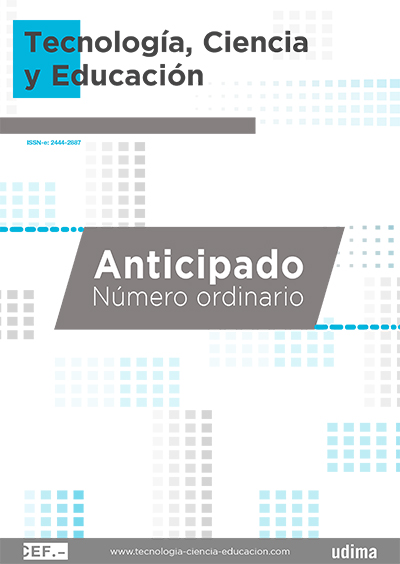Proposal for the creation of a digital entertainment space at the Fundación Universitaria UniCervantes
DOI:
https://doi.org/10.51302/tce.2025.24211Keywords:
digital entertainment, institutional welfare, socialization, video games, electronic sports (eSports), educational spaces, social inclusion, personal developmentAbstract
This presentation details the formulation of a proposal for the Fundación Universitaria UniCervantes, focused on the creation of a digital entertainment lounge as part of the institutional welfare strategies. The initiative is a continuation of a previous research study that revealed significant interest among students (men and women) in having an alternative space to traditional classrooms. A survey showed that 73 % of students enjoy playing video games, and 42 % use them as a means of socializing. These findings prompted the proposal to the university administration for a dedicated digital leisure area, offering an inclusive socialization alternative, particularly for students who are introverted or not inclined to physical or cultural activities.
The primary objective is to implement an inclusive entertainment space that allows for the study of the impact of e-sports on personal and social development. The process began with visits to other institutions, consultations with the academic community about their preferences, and the allocation of a physical space. A preliminary layout and usage policies were developed, anticipating possible criticisms from university management, followed by the execution of a pilot test to gather student feedback on the experience. The proposal evolved to balance student expectations with institutional guidelines. This paper summarizes the development of the project from its conception to the execution and evaluation of the pilot test. At the conclusion of the pilot, the students' enthusiasm for the idea of having a dedicated digital leisure space was evident, and their responsible use of the space and healthy engagement with their free time was demonstrated.
Downloads
References
Chacón Cuberos, R., Zurita Ortega, F., Martínez Martínez, A., Castro Sánchez, M., Espejo Garcés, T. y Pinel Martínez, C. (2017). Relación entre factores académicos y consumo de videojuegos en universitarios. Un modelo de regresión. Revista de Medios y Educación, 50, 109-121. https://www.redalyc.org/articulo.oa?id=36849882007
Congreso de la República de Colombia. Cámara de Representantes. (2023). Ponencia para primer debate en la Cámara de Representantes al Proyecto de Ley 007 de 2023-«Ley de los e-sports», acumulado con el proyecto de Ley 044 de 2023-«Deportes electrónicos». https://www.camara.gov.co/sites/default/files/2023-10/Ponencia%20primer%20debate%20pl.%20007%20de%202023%20-Acum%20044%20de%202023%20(oct.%203,%2016-00%20H.).pdf
Cuenca, M. (2011). El ocio como ámbito de educación social. Educación Social, 47, 25-40. https://redined.educacion.gob.es/xmlui/bitstream/handle/11162/29052/00920113012788.pdf?sequence=1
Dellepiane, P. (2024). Reseña bibliográfica del libro Los videojuegos como cultura: identidad y experiencia en el mundo actual, de D. Muriel y G. Crawford (Autores). Tecnología, Ciencia y Educación, 29, 169-172. https://www.tecnologia-ciencia-educacion.com/index.php/TCE/article/view/21545
Estacio, C., Navarrete, J. V., Aponte, J. P. y Ortiz, S. (2023). Beneficios del uso de los e-sports o deportes electrónicos como actividad de bienestar en instituciones de educación superior colombianas. Vía Innova, 147-164. https://doi.org/10.23850/2422068X.5953
Eurogamer España. (2022). Los videojuegos me salvaron la vida [vídeo de YouTube]. https://www.youtube.com/watch?v=XD6KFWvUxpg
Gómez León, M. I. (2024). Eficacia de los videojuegos en la regulación emocional de los estudiantes. Tecnología, Ciencia y Educación, 29, 31-58. https://doi.org/10.51302/tce.2024.21317
González Vázquez, A. e Igartúa, J. J. (2018). ¿Por qué los adolescentes juegan videojuegos? Propuesta de una escala de motivos para jugar videojuegos a partir de la teoría de usos y gratificaciones. Cuadernos.Info, 42, 135-146. https://doi.org/10.7764/cdi.42.1314
Meatze. (2020). Crecimiento de la industria del videojuego durante la crisis del COVID-19. https://www.meatze.eus/noticias/crecimiento-de-la-industria-del-videojuego-durante-la-crisis-del-covid-19/
Morillo, V. (2024). El mejor documental del año está en Netflix: Mats Steen, el joven que vivió la vida real dentro de un videojuego. elespanol.com. https://www.elespanol.com/series/netflix/20241027/gracias-avatar-wow-mats-steen-vivio-vida-real-plena-mejor-documental-netflix/896660396_0.html
Nieto Rey, N. y Ramírez Ospina, H. D. (2019). Cultura gamer y videojuegos: espacio académico-deportivo de eSports en la Fundación Universitaria Los Libertadores. Fundación Universitaria Los Libertadores: https://repository.libertadores.edu.co/items/24f1b38b-8039-461d-aaf2-deea09ea9209
Olazábal Boggio, R. D. y Zegarra Mendoza, V. E. (2017). Procrastinación e intereses a los videojuegos en ingresantes a la escuela de psicología de una universidad privada. PAIAN, 8(1), 4 -14. https://dialnet.unirioja.es/servlet/articulo?codigo=9390928
Pascucci, M. (2015). Los jóvenes universitarios y el ocio. European Scientific Journal, 11(10), 116-127. https://eujournal.org/index.php/esj/article/view/5551
Ree, B. (Dir.). (2024). La singular vida de Ibelin [película]. Netflix. https://www.netflix.com/co/title/81759420
Salazar Gaitán, I. (2023). En Colombia hay cerca de 10 millones de gamers activos, no solo en consolas o PC. La República. https://www.larepublica.co/empresas/inside-lr-con-edgar-hernandez-leon-gerente-de-xbox-para-colombia-y-la-region-quien-hablo-sobre-los-cambios-de-la-marca-3726305#:~:text=Tenemos%20un%20gran%20rango%20de,de%2018%20a%2035%20a%C3%B1os
Smart, A. J. (2013). El arte y la ciencia de no hacer nada.librosmaravillosos.com. http://www.librosmaravillosos.com/elarteylacienciadenohacernada/pdf/El%20arte%20y%20la%20ciencia%20de%20no%20hacer%20nada%20-%20Andrew%20Smart%20.pdf
Universidad Andina Simón Bolívar-Ecuador. (2021). El coronavirus fortalece la industria de los videojuegos. https://www.uasb.edu.ec/ciberderechos/2021/06/15/el-coronavirus-fortalece-la-industria-de-los-videojuegos/
World Vision. (2022). Mira 10 maneras en que tus hijos pueden aprender jugando. World Vision Costa Rica. https://www.worldvision.cr/blog/aprender-jugando-10-ventajas-del-juego-para-la-socializacion
Downloads
Published
How to Cite
Issue
Section
License
Copyright (c) 2025 Camilo Estacio

This work is licensed under a Creative Commons Attribution-NonCommercial-NoDerivatives 4.0 International License.

























